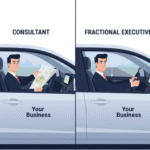Freelancing is the future of work and is reshaping the traditional employment landscape. It’s a win on all fronts for budding entrepreneurs and seasoned companies.
While there’s nothing wrong with conventional employment, the gig economy has firmly planted its roots. Recent data from platforms like Upwork and associations like the Freelancers Union suggest that over half of the millennial workforce in the U.S. currently freelances, with projections indicating a majority by 2027.
The world of freelancing is constantly evolving. To get a clearer perspective on its trajectory, I read an article that quoted Iain McNicoll, Payoneer’s VP for the Americas. His insights guide businesses in strategizing their hiring processes and empower freelancers to navigate their paths confidently.
The Future of Freelancing
1. The Norm of Hiring Freelancers
The fast-paced evolution of technology and increased global competition necessitates agility in staffing decisions. With the allure of job flexibility and potentially higher earnings from freelancing, business leaders, irrespective of their company sizes, are increasingly leaning towards freelance hires. They are no longer just a temporary solution or a cost-saving strategy but an integral part of business structures.

2. Geography is No Longer a Constraint
The digital revolution has erased geographic limitations. Ambitious individuals can now reach a worldwide client base, offering their expertise where it’s most in demand. Companies, in turn, prioritize skill over location. The hiring paradigm has shifted from ‘Where is the talent?’ to ‘Who is the talent?’
3. A Surge in Specialist Demand
McNicoll emphasizes that freelancing enables professionals to hone specific skills, making them subject-matter experts. Businesses, consequently, are on the lookout for such specialists to complement their in-house generalists.
Platforms showcasing freelancer expertise, like Upwork’s vast categories and subcategories, are becoming go-to places for companies seeking niche skills. It’s becoming less about jacks of all trades and more about masters of one.
4. Growth of Freelancer Support Ecosystem
McNicoll points out the burgeoning demand for tools and platforms supporting freelancers. While some, like TopTracker, offer operational aids like time tracking and invoicing, others bridge the benefits gap traditionally provided by HR, such as health insurance and retirement plans.
This burgeoning ecosystem ensures freelancers have the resources that were once exclusive to full-time employees, presenting a golden chance for innovative businesses to tailor solutions to modern work preferences.

5. Freelancing: A Career Mode, Not Just a Path
One of the most transformative shifts McNicoll foresees is the transition of freelancing from a standalone career choice to an option available across all professions. Whether a graphic designer or a lawyer, the future will offer a choice not just in the job role but in the mode of working – freelance or in-house. This approach promises more business adaptability, enhanced worker autonomy, and broader career possibilities.
Conclusion
In summary, the horizon of freelancing is not just about ‘where’ or ‘what’ but also ‘how.’ As the next five years unfold, freelance work will become an even more integral facet of the global work landscape.
Frequently Asked Questions (FAQs)
How can companies best adapt to the growing freelance trend?
Companies can embrace the freelance movement by investing in platforms that help identify skilled freelancers, offering flexible work arrangements, and integrating tools that facilitate remote collaboration. Continuous training and workshops on best practices for working with freelancers can also help in-house teams adjust to this evolving work model.
Are there specific industries where freelancing is more prevalent?
While freelancing is making its mark across various sectors, industries like IT, graphic design, writing, and digital marketing currently have a more significant freelance presence. However, as the article points out, this trend is expanding, and soon, we might see freelancing options in professions like law, finance, and even healthcare.
What challenges might freelancers face in this evolving landscape, and how can they overcome them?
Freelancers often grapple with issues like inconsistent income, lack of traditional employment benefits, and potential feelings of isolation. To combat these, freelancers can diversify their client base, invest in personal health and retirement plans, and engage in co-working spaces or online communities to network and share experiences with peers.
Want more content from NeoGig?
Leveraging Fractional Executives for Innovation
Revolutionizing Your Business with Fractional Executives: Is It Worth It?
Fractional Labor – A Guide to Leveraging High-End Talent Without Breaking The Bank







